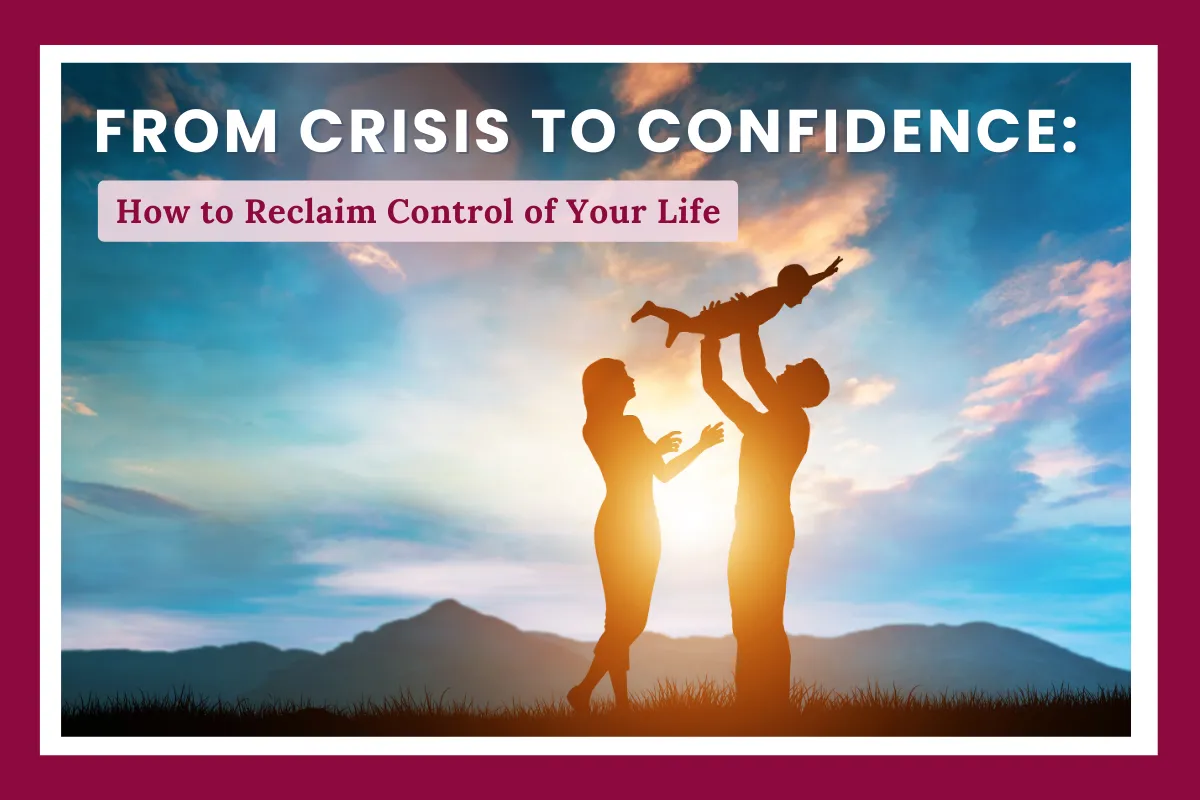
From Crisis to Confidence: How to Reclaim Control of Your Life
When life feels like it’s spiraling out of control, it can be hard to imagine a way forward—let alone one where you feel strong, steady, and confident again.
But here’s the truth: crisis doesn’t have to define you. In fact, it can be the turning point that sets you on the path to a more empowered life.
At A Compass for Home, I’ve worked with people who feel lost, stuck, or overwhelmed—people just like you. And I’ve seen firsthand how, with the right tools and guidance, transformation is absolutely possible. If you’re in a place of emotional chaos, this post is for you.
Let’s explore what it takes to move from crisis to confidence.

Step 1: Acknowledge the Reality—Without Judgment
The first step in reclaiming your power is recognizing where you are without shame or self-blame. Whether you’re navigating grief, relationship breakdown, job loss, burnout, or trauma, give yourself permission to simply be human.
You are not weak for struggling. You are not broken for needing support.
So many people get stuck in a cycle of guilt and avoidance, but naming your reality with compassion is the beginning of clarity. When you stop judging your emotions, you create space to understand them—and from there, you can begin to move forward.

Step 2: Reframe Your Inner Dialogue
One of the most powerful tools in mindset coaching is learning to shift the stories we tell ourselves.
If you hear a constant inner voice saying things like:
“I can’t do this.”
“I always mess things up.”
“Nothing ever works out for me.”
…then it’s time to challenge those narratives.
Start small. Notice the thought. Ask, “Is this true—or is this just a fear?”
Then replace it with a more empowering statement:
“This is hard, but I’m learning.”
“I’m taking steps, even if they’re small.”
“I don’t have to have it all figured out right now.”
Language matters. And the words you speak to yourself shape how you show up in the world.

Step 3: Identify What You Can Control
Crisis often brings a loss of control—and with it, a feeling of helplessness. That’s why one of the core tools I teach in The Navigation Program is how to identify where your power lies.
You might not be able to fix everything overnight, but you can:
Set boundaries around your time and energy
Reach out for professional support
Begin a new daily habit that grounds you
Choose one thing to focus on each day
When you start taking consistent, empowered action—no matter how small—you begin rebuilding trust with yourself. That’s where confidence starts.

Step 4: Build a Resilience Practice
Resilience isn’t something you’re born with—it’s something you build.
Here are three simple ways to start:
Daily check-ins – Ask: “How am I feeling today?” Name it without judgment.
Create rituals of calm – Morning breathing, a short walk, journaling—whatever gives you peace.
Celebrate micro-wins – Every time you do something hard, acknowledge it. You’re rewriting your story.
You don’t need to be perfect. You just need to stay present, stay curious, and stay committed to your healing.

Step 5: Know You Don’t Have to Do This Alone
One of the hardest parts of navigating crisis is believing you’re in it by yourself. But support is not a weakness—it’s a strategy.
That’s why I created The Navigation Program: a structured, step-by-step coaching experience designed to help you break negative cycles, regain clarity, and start rebuilding from the inside out.
Whether in person or virtually, you’ll receive compassionate guidance and practical tools tailored to where you are now—and where you want to go.
Confidence is Built—One Choice at a Time
You don’t need to feel strong to start making empowered choices. You simply need to decide that your healing matters.
Every small step you take toward clarity, courage, and self-trust is a victory. And as you continue showing up for yourself, even in the hard moments, confidence will grow.
You are not alone. You are not stuck. And you are more capable than you think.
Visit acompassforhome.com





